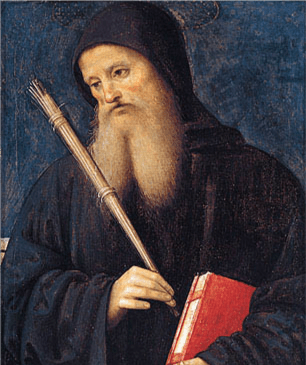After the fall of the Western Roman Empire in 476 AD, the European continent suffered a period of utter chaos. Institutional government was replaced with anarchy, violent raids were commonplace, the educational system was in shambles and the Christian faith was suppressed. Western civilization needed nothing short of a miracle to recover from this tragedy. Thankfully, that miracle came in the most unlikely form…a young boy named Benedict. Born in 480 AD, he grew up amidst the shattered ruins of a once mighty empire. Benedict witnessed first-hand the devastation of the Barbarian invasions which had destroyed his people’s way of life. For years he and his family hoped someone would lead the Roman empire out of the ashes of destruction and rebuild their civilization; little did he know that it would be him. At the age of twenty, Benedict was sent to study in the city of Rome, but found the life there to be superficial and promiscuous. Even though he excelled in his studies, his heart found no satisfaction in the academic environment. Seeking some sort of purpose, Benedict fled to a cave in the Apennines mountains where he lived for the next three years in solitude. Little is known about this period in the saint’s life except that he underwent a major conversion of mind and soul. St. Gregory the Great in his renowned biography The Life of St. Benedict simply states, Benedict entered the cave a boy and left it a man. He re-enters society with a new way of life hitherto untried in world history and this way of life will re-civilize the Western Europe. Benedict asserts that the answer to reforming civilization is monasticism. The world had forgotten how to live, how to be human and most importantly, how to love God. The young hermit would re-teach the world these basic principles by forming localized communities of monks who would pray, work and study. In so doing, their monasteries would become hubs of culture where every man, woman and child could be introduced to the profundity of holiness. They would learn how to read and write, plant and harvest, build and paint. Above all, the monks would teach the people how to sing and pray, thus re-orienting their lives to God and providing a sure foundation upon which to rebuild their tattered cities. St. Benedict penned what proved to be one of the most important books of all time, The Rule of St. Benedict. The book is short and easy to read. Its purpose is simple, to give a standard of daily living by which to order one’s life. Although intended for monks, its principles of humility, obedience, work ethic and prayer can aid any Christian.



